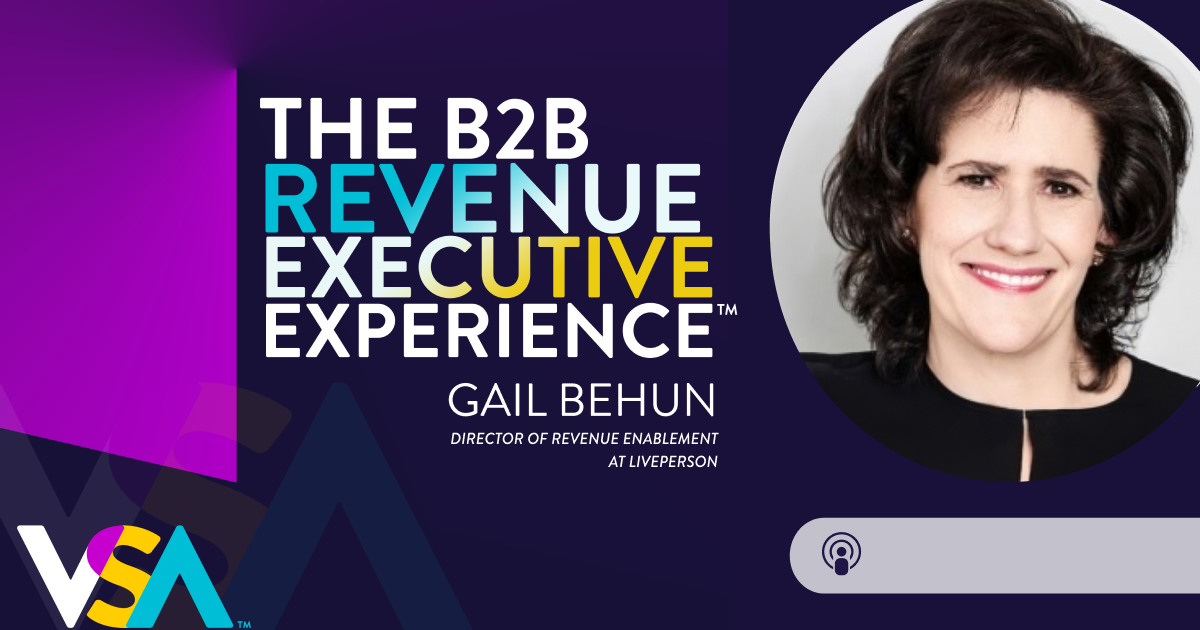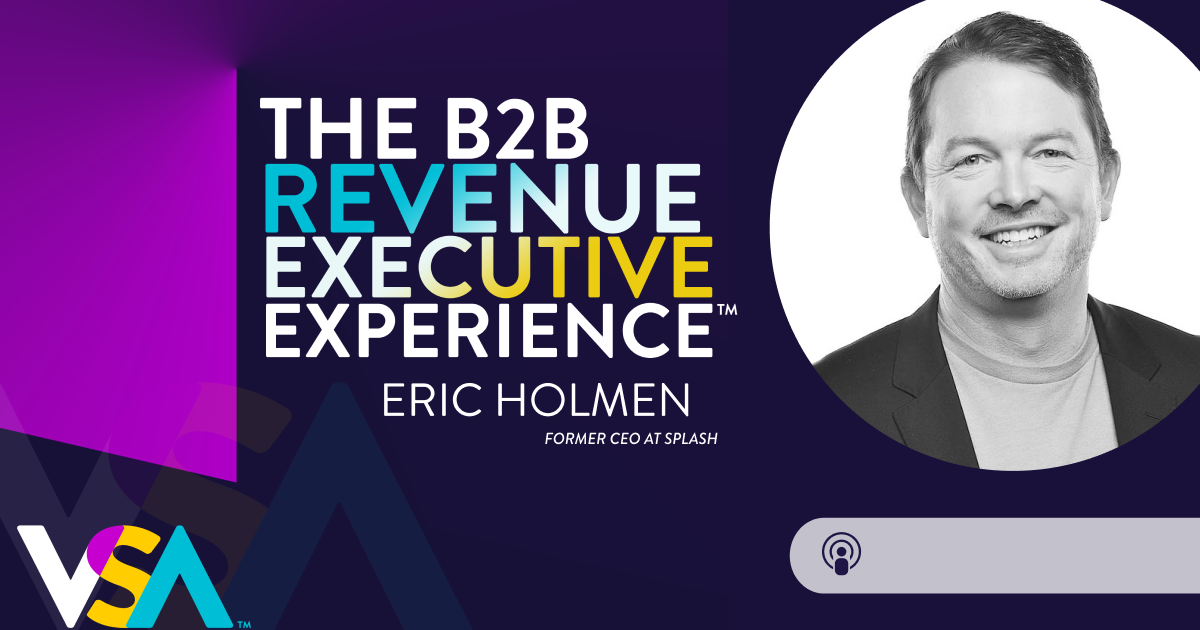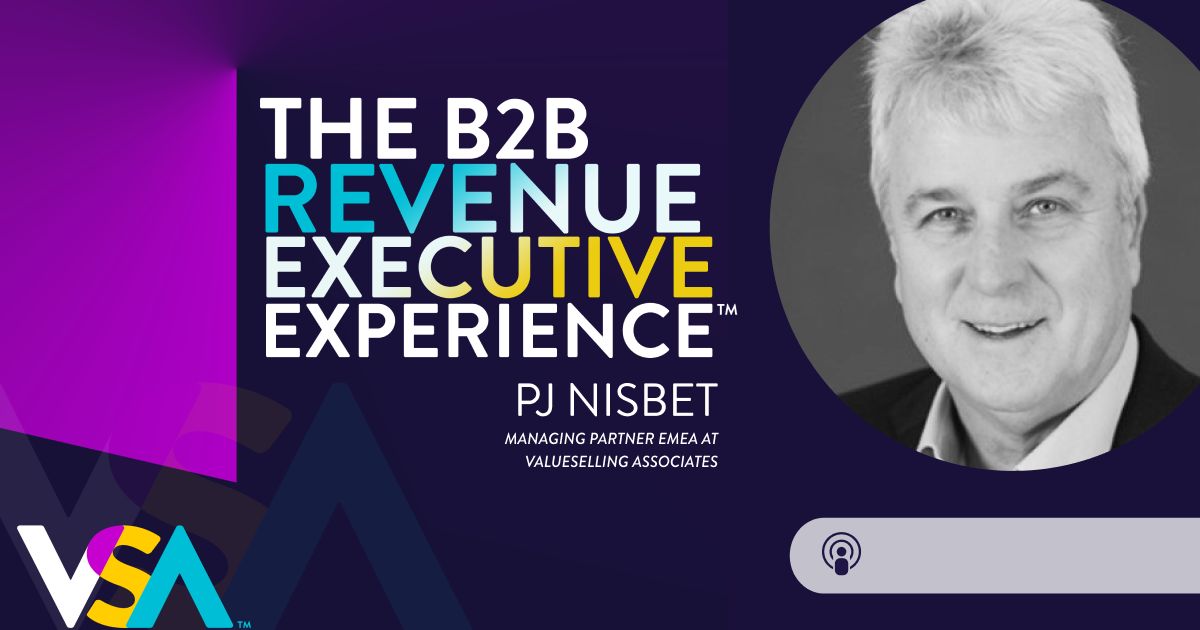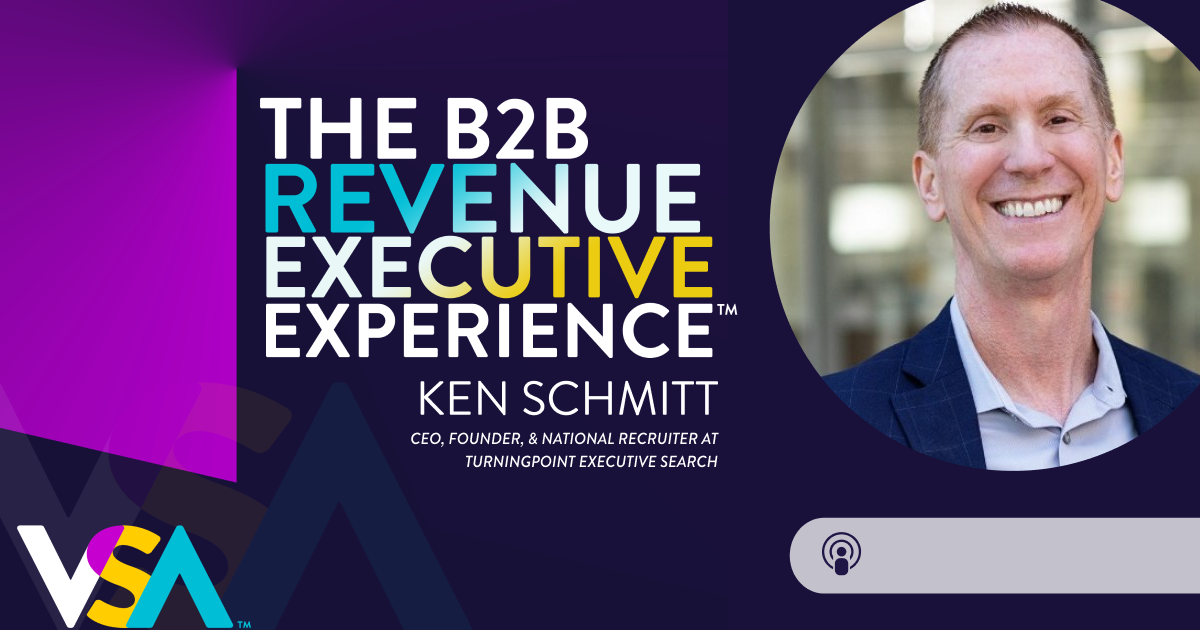Episode 292: Unlocking AI's Potential for Revenue Growth with Jeff Pedowitz

AI may not be the best option for creativity, intuition, and emotions.
However, when it comes to crunching numbers, it's a gold mine.
From a revenue perspective, AI is a real game-changer.
So, we were wondering...
How can revenue professionals unlock the full potential of AI to transform their businesses?
To shed light on this important topic, we are joined by Jeff Pedowitz, President and CEO of The Pedowitz Group. Jeff is an AI revenue visionary and Forbes best-selling "The AI Revenue Architect" and “F the Funnel.”
How Can You Harness AI to Help Achieve Business Growth?
Over the years, AI has evolved into an essential tool for business growth, going beyond its early limited applications in manufacturing and science. Thanks to OpenAI's ChatGPT, AI became more accessible and intuitive, eliminating the need for specialized user-interface knowledge. From a business perspective, AI's primary value lies in its ability to enhance productivity and efficiency by automating manual, repetitive tasks, freeing up time for more value-added activities.
Also, AI enables personalized communication at scale across various platforms, which helps address the diverse preferences of multiple demographics. This capacity is vital in today's digital landscape, where platforms like Instagram and TikTok dominate younger demographics. Finally, AI's ability to process vast amounts of information paves the way for new revenue streams, allowing businesses to explore innovative models like subscriptions and partnerships.
“What AI means for a business is, first and quite simply, it's about efficiency and productivity, just like we use laptops, we have calculators, email, printers, we have our smartphones, Fitbits, and our watches. And it just allows us to do more faster, particularly things that are highly manual, repetitive, and task-oriented. AI is exceptional at that”.
Jeff Pedowitz, President and CEO of The Pedowitz Group
How AI Is Personalizing Your Online World
Thanks to AI, personalization is becoming more advanced, surpassing the traditional use of cookies. As businesses gather more user interaction data on their sites, they can personalize experience more accurately. For example, the website will soon offer personalized menus and content, anticipating user needs based on past behavior.
We can also see this change happening in search engines. Instead of a list of links, AI can generate more relevant information. Think of it as airplane screens, where the interface is the face, but everyone watches something different. This personalization extends to news websites and social media, creating unique, echo-chamber-like experiences.
“AI, because it can harness so much information, it gives us the ability to develop new revenue streams”.
Jeff Pedowitz, President and CEO of The Pedowitz Group
Strategic Integration of AI Tools in Business
Drawing parallels to the dot-com era, where everyone was racing to get technology, many AI tools will not succeed just because you're investing money in it. Be cautious, experiment with them first, and establish an AI council to strategically evaluate the tools before choosing the ones that might help your business.
Start with valuable apps like ChatGPT, Jasper for marketing content, and Microsoft's Copilot, which integrates AI into familiar Office applications. This will help you to gradually adapt to AI, starting with specific use cases and advancing to broader domain applications across entire departments and product lines.
“There are some similarities between what's going on now to what happened in the dot-com era, where it was racing to get technology. And many of these apps are not going to go the distance because I'm throwing money at it. So caution is good, control of experimentation, having some funds available, developing an AI council, having a committee, and strategically evaluating things. And you can play, but do it in a controlled manner”.
Jeff Pedowitz, President and CEO of The Pedowitz Group
The AI Touch in Shaping the Future of Sales and Marketing
Thirty years ago, marketers and sales reps didn't have internet, email, social media, or even cell phones. With the integration of new technology, things have shifted rapidly towards a more strategic, AI-driven approach.
We might witness a future where AI-enabled customer self-service, e-commerce, and content management systems will offer customers greater autonomy in accessing and purchasing products and services.
To stay relevant in the market, gain proficiency in conversational AI and tools like ChatGPT. But it's not just about technology; building and maintaining customer relationships will always be key, regardless of technological advancements.
“We still need to be strongly customer-oriented. But I see us becoming much more strategic versus transactional. I think that AI, combined with e-commerce, content marketing management, and content management systems, is going to allow the customer to self-serve the vast majority of these things. They're going to be able to get the content the way they want it. They're going to be able to buy how they want. But I think sales and marketing, we're going to be much more strategic, designing and building the ecosystems and figuring out the right ways to orchestrate this activity”.
Jeff Pedowitz, President and CEO of The Pedowitz Group
Now that you've explored strategies to harness AI's potential to grow your business, check out the full list of episodes at The B2B Revenue Executive Experience. If you enjoy the show, instructions to rate and review it are found here.
Explore More









